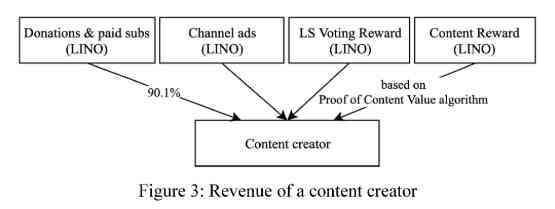The main international airport of the Netherlands will now let you convert those “leftover euros” at the end of your Eurotrip to cryptocurrency.

Amsterdam Airport Schiphol announced today that it has installed a “Bitcoin ATM” to let passengers convert euro to Bitcoin and Ethereum.
The ATM is installed for a six-month trial period — to gauge demand for the service among passengers. Schiphol says that it is the first European airport to offer such service to travellers.
“Schiphol is constantly looking for ways to innovate and provide optimum service to passengers,” Tanja Dik, director of Consumer Products and Services at Schiphol said in the announcement. “With the Bitcoin ATM, we hope to provide a useful service to passengers by allowing them to easily exchange ‘local’ euros for the ‘global’ cryptocurrencies Bitcoin and Ethereum. That can be beneficial if, for instance, it’s not possible to spend euros in their home country.”
If you do end up at Schiphol Airport, you will find the Bitcoin ATM in Arrival Hall 2. The ATM is accessible from the corridor to Departure Halls 1 and 2, and the Schiphol Plaza. Here’s how it looks:
The ATM has been introduced in partnership with ByeleX Data Solutions BV — a Dutch company that provides cryptocurrency payment integration services to businesses.
It is worth noting that Schiphol is not the first airport in the world to lend support to cryptocurrencies. In a first, merchants at Brisbane Airport in Australia integrated cryptocurrency payments in May.
With the number of businesses accepting virtual currencies increasing rapidly — it has become a lot easier for enthusiasts to travel the world on cryptocurrencies alone .
PewDiePie to give $50K via blockchain app that deplatformed Alex Jones
PewDiePie has announced a special event , but it won’t be live on his native YouTube. Instead, he will use a blockchain-infused streaming service DLive – and he’s giving away a bag of money to help promote the budding network.

On April 14, PewDiePie will donate up to $50,000 to 100 users in a livestream on DLive. DLive donations can be made via PayPal, but all funds are immediately converted to LINO cryptocurrency at a conversation rate of $0.0012 per token.
DLive is a “decentralized dapp” (dapp) deployed to a testnet of the LINO blockchain. It made headlines last year when it raised $20 million through a private token sale to fund development of a “crypto YouTube.”
The dapp promises to be a fairer alternative to major video platforms like YouTube, which keeps upwards of 45 percent of revenue made through ads and donations, Newsweek reports .
Algorithms, algorithms, and more algorithms for fairer crypto-rewards
“90.1 percent of all donations and paid subscriptions made using the Lino blockchain will be paid algorithmically to the content creators, and the remaining 9.9 percent will be held in reserve by the blockchain protocol and distributed to all LINO stake holders,” reads LINO’s docs .
Developers (like DLive) are urged to not take any additional cuts from viewers’ payments to content creators, as they are intended to be rewarded by the ecosystem itself.
LINO’s blockchain uses Tendermint’s BFT-based Proof-of-Stake consensus method. This means token holders can lock their funds and use the weight of their stack to vote on governance issues, like system upgrades and other protocol changes. Content creators can only stream and upload videos if they run LINO nodes.
It also employs an “interesting” algorithm called “Proof of Content Value,” a supposedly fair metric built into the LINO blockchain that measures revenue generated from content. It promises to prevent bots from gaming the system.


LINO says it relies on a system called “ Proof of Human Engagement ,” which distributes rewards based on how much users interact with the platform.
“In the future, the reward distribution algorithm will evaluate a viewer’s watching time, chat frequency, and donation behaviors to fairly allocate the reward,” promised LINO.
DLive likely not the decentralized streaming platform we need
LINO seems awfully similar to other content-driven blockchains like STEEM . In fact, DLive was actually first deployed on STEEM , and once touted as the first of its kind on that network. Now, it’s running on the LINO testnet.
DLive CEO Charles Wayn laid out the reasons why last year : “The current economic model of Steem incentivizes large Steem holders to continuously upvote their own content and other creators who specifically support their content. This creates an ecosystem where a content’s true value can’t be recognized or be fairly rewarded.”
“Community members who are not ‘privileged’ enough to be a part of these groups with large voting power are therefore penalized financially,” he continued. “This problem has been brought up many times within the community and even by prominent figures outside of the community.”
The common belief shared by LINO marketing materials is the network should be capable of handing up to 10,000 transactions per second. PewDiePie has upwards of 90 million fans, so odds are, we’re about to find out how valid those claims might be.
As LINO is still a testnet, the event will likely serve neat benchmark of its capabilities, especially considering the weight of PewDiePie’s fanbase.
It also has to be said that even though DLive is hosted by a blockchain (technology that’s traditionally censorship-resistant), this won’t mean PewDiePie will have license to push too many “creative boundaries” (if he wanted to, that is).
Indeed, DLive recently deplatformed Alex Jones for infringing upon its strict content guidelines against potentially offensive content, which read eerily similar to YouTube and Facebook’s list of norms and standards. Jones had previously been banned from YouTube, Spotify, Apple, and Facebook.
Sadly, this is likely not the decentralized streaming revolution we’ve been looking for. Who would have guessed.
Did you know? Hard Fork has its own stage at TNW2019 , our tech conference in Amsterdam. Check it out .
Alibaba’s Jack Ma: Blockchain will be useless if it doesn’t help the environment
Alibaba chief Jack Ma thinks blockchain tech is pretty meaningless – unless it helps us transform the manufacturing industry and protect the environment.

In a keynote at World Artificial Intelligence Conference in China, the star entrepreneur shared his beliefs that budding technologies like blockchain, artificial intelligence (AI), and the Internet of Things (IoT) have yet to prove their utility to the world, local outlet cnBeta reports .
“The data age is major opportunity for manufacturers to reform the industry,” Ma said at the conference. “ But b lockchain and IoT will be meaningless tech unless they can promote the transformation of the manufacturing industry, and the evolution of the society towards a greener and more inclusive direction.”
For the record, while he did touch on blockchain, Ma focused his speech on some common misconceptions about AI and what role the technology can play in the future.
Although the entrepreneur stopped short of revealing whether and how Alibaba intends to integrate blockchain into its services, it appears the company is no stranger to distributed ledger tech (DLT). Indeed, reports suggest Alibaba and IBM hold 90 percent of all DLT-related patents worldwide.
Still, it turns out that wasn’t enough to stop Alibaba – and fellow Chinese tech giants Baidu and Tencent – from banning all cryptocurrency-related activities from its platform.
[H/T @cnLedger ]











